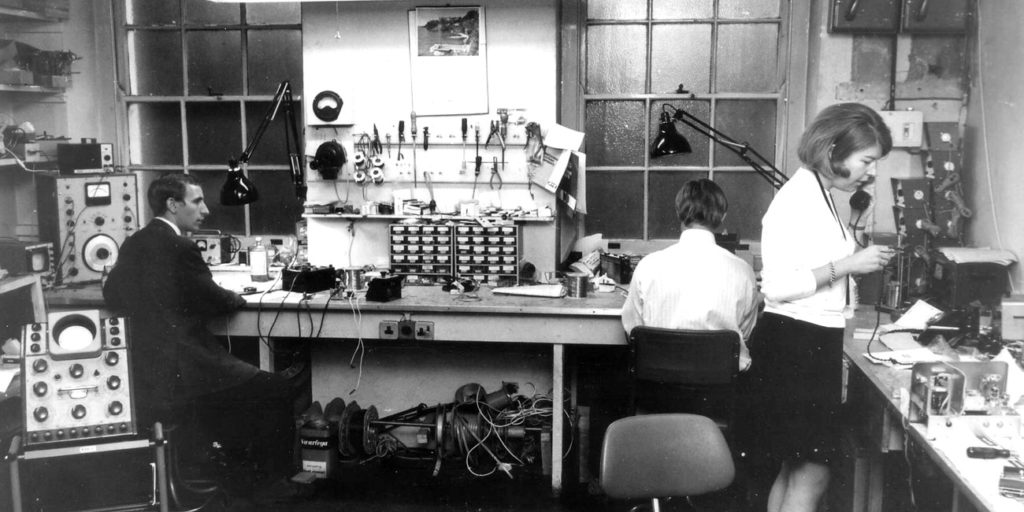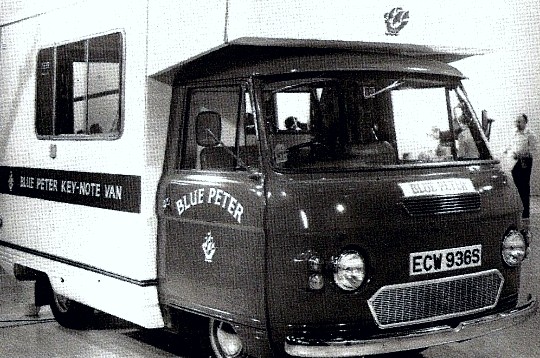We’ve helped millions of people in the century since our charity began. Our key events show how we’ve been changing lives from our start in 1911 right up to today.
1911
On 9 June, Leo Bonn, founds The National Bureau for Promoting the General Welfare of the Deaf.
1924
We reorganise the charity to raise our post-war profile and rename it The National Institute for the Deaf.
1929
We open our first residential care home in Lancashire, going on to become one of the UK’s leading specialist-care providers.
1939
We support the war effort by sending hearing aids to deaf prisoners of war, which can be converted into miniature radio receivers for spying purposes!
1946
We launch The Silent Word, a monthly magazine to give deaf people a voice and spread information about hearing issues.
1948
We successfully lobby the newly formed NHS to provide free hearing aids and batteries UK-wide.
1957
We launch our first helpline, the Personal Advice Bureau, to answer the increasing number of queries we receive.
1958
We’re delighted that HRH Prince Philip, Duke of Edinburgh, whose mother was deaf from birth, becomes our royal patron.
1961
The Queen approves the addition of ‘Royal’ to our name for our jubilee year. We become the Royal National Institute for the Deaf.

1969
We launch a hearing aid battery tester to help hearing aid users check their batteries easily and quickly.
1974
Following our research, the NHS issues behind-the-ear hearing aids.
1978
We’re awarded 4 camper vans by the BBC TV programme Blue Peter. The vans allow RNID staff to visit children who live in rural areas and provide hearing tests, specialist teaching and other audiology services.

1983
We successfully campaign for rubella vaccinations for young women. The virus, which can cause deafness and other disabilities in unborn babies, has since been virtually wiped out in the UK.
1989
Michael Batt becomes the first British child to receive a cochlear implant, following almost a decade of research and work with surgeons at the Royal Ear Hospital.
2000
Following our campaign with the National Deaf Children’s Society, all newborn babies are offered hearing screening by the NHS. We also start working with the NHS to deliver modern digital hearing aids as standard.
2004
Research we fund links a type of gene, called a microRNA, to hearing loss for the first time. This work opens up a new field of research into hearing loss.
2011
We celebrate our 100th birthday and change our name to Action on Hearing Loss.
We also launch our Translational Research Initiative for Hearing (TRIH), which encourages pharmaceutical companies to invest in the development of new treatments and cures for hearing loss and tinnitus.
2012
Research funded by us shows human stem cells restore hearing in deafened gerbils – a breakthrough in the search for a way to restore natural hearing.
2013
We merge with medical charity Deafness Research UK. Together, and with more funding, we’re determined to cure hearing loss within a generation.
2015
A new genetic test for hearing loss becomes available on the NHS as a result of research we funded. The test screens for most of the known genes that cause deafness.
2016
Research breakthrough identified the first gene, SERPINF1, to cause otosclerosis, a condition leading to deafness.
2017
Our campaigners change the law by securing an amendment to the Digital Economy Act 2017.
This gave the government power to regulate online video services and require them to have a minimum level of subtitled and signed content.
2018
Thanks to our calls, NICE publishes the first guideline for the assessment and management of hearing loss. This recognises the enormous benefit hearing aids provide and states that hearing aids should be given to all who need them.
2020
We change our name back to RNID and launch our new purpose:
“Together, we will make life fully inclusive for deaf people and those with hearing loss or tinnitus.”
2021
We launch a free online hearing check. It takes up to 3 minutes and will suggest whether your hearing is in a normal range or whether you may have hearing loss.
2022
RNID joins the multi-organisational BSL Act Now! campaign, led by the British Deaf Association, to demand legal recognition to British Sign Language (BSL). The campaign is a success with the passing of the BSL Act.
2023
Joining forces with RNIB, and RNID’s ambassador Sam Baines, we continue our Subtitle It! campaign, demanding for better provision of subtitles and interpretation on on-demand TV.
This triggers the drafting of the Government’s Media Bill, which passed its second reading at the end of 2023.
2024
This year starts with the launch of our Ear Wax Removal campaign, highlighting the lack of NHS provision of free ear wax removal services for those with a medical need. The campaign and our new report takes the media by storm, as RNID is featured in the press and on national TV.